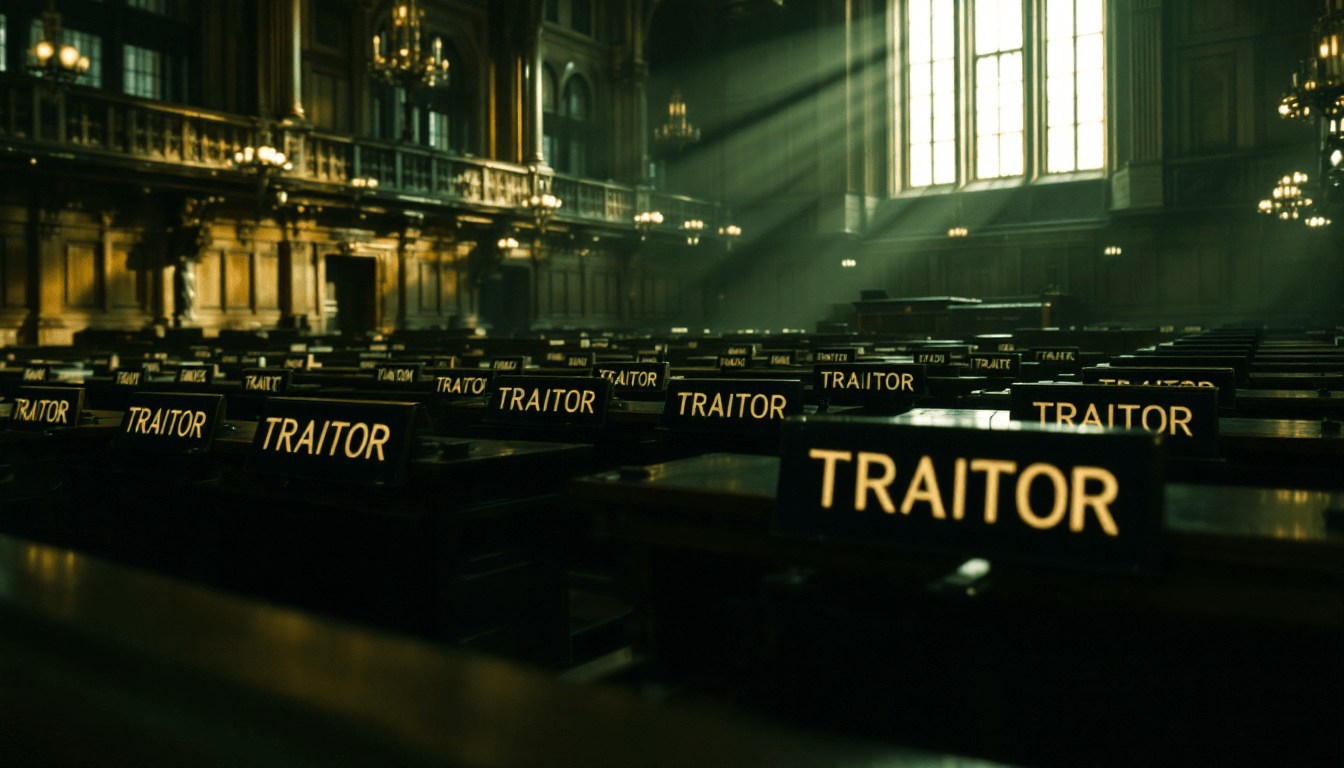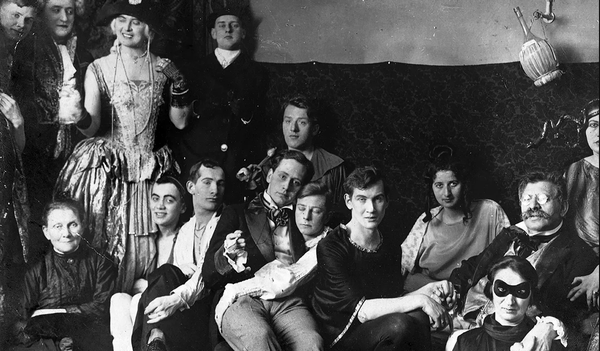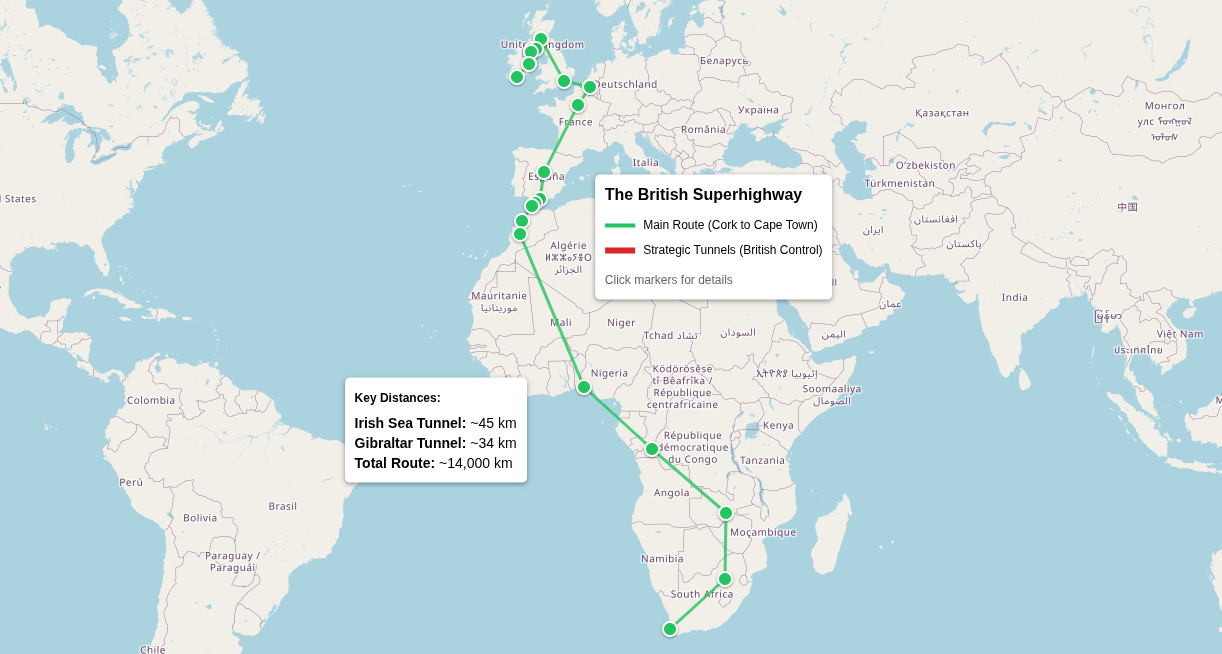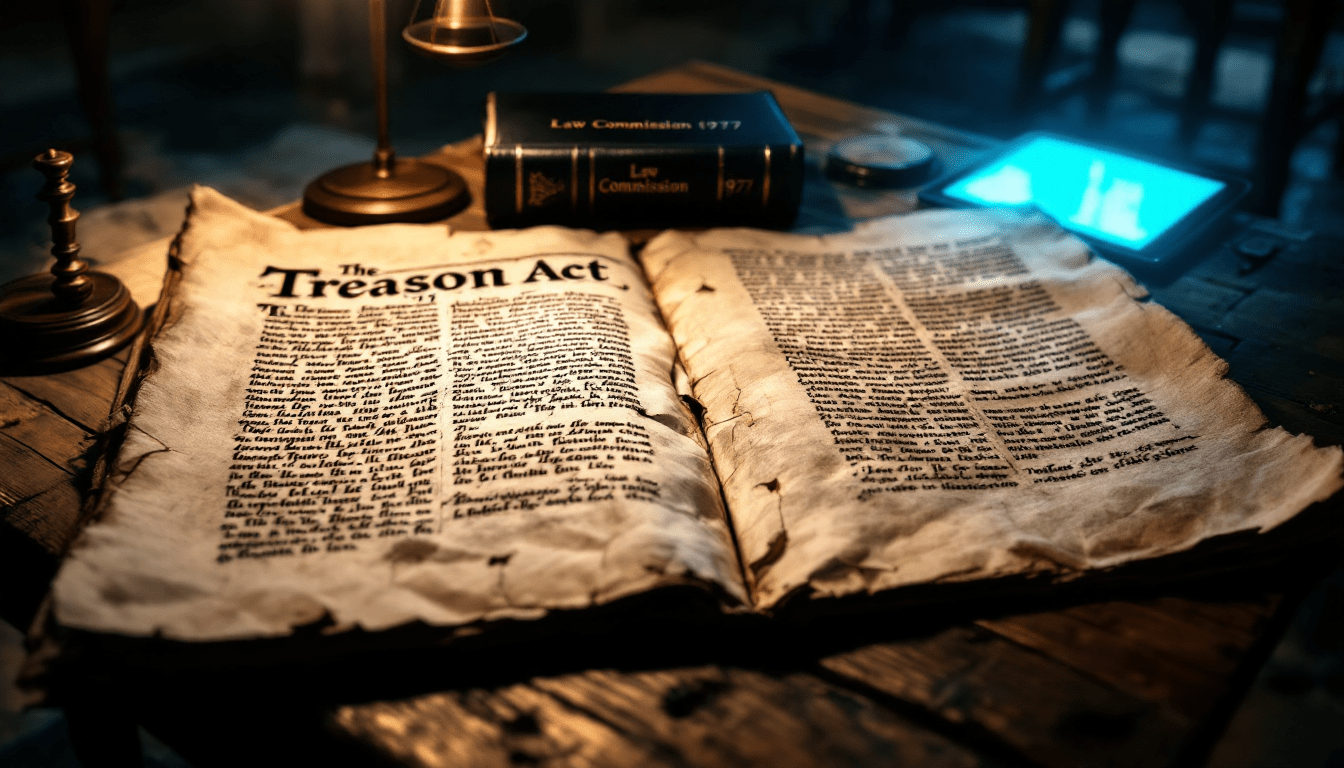Does Parliament Have The Authority To Displace Its Own Electorate?
Parliament claims authority because it represents the people, then changes who "the people" are. This creates a logical contradiction: you cannot use power granted by specific people to displace those people with others. Derived authority cannot redefine its source.

Imagine your local tennis club. The members elect a committee to run the club's affairs - organising tournaments, maintaining the courts, setting the annual fees. But what if the committee decided to admit thousands of new members without asking the existing ones? What if these new members then outvoted the original members on everything from membership fees to club rules? You'd rightly say the committee had overstepped its authority. They were elected to serve the existing members, not to choose their own membership.
You employ an estate agent to sell your house. Can the agent then decide to sell your neighbour's house instead and give you those proceeds? Of course not - their authority comes from you and extends only to your property.
Or consider a company's board of directors. Shareholders elect them to manage the business. But can the board then issue millions of new shares to completely different people, making the original shareholders a tiny minority? Corporate law says absolutely not - this would be a fundamental breach of their duties to those who appointed them.
Partners in a law firm vote to elect a managing partner to run the company's day-to-day operations. Can the managing partner then bring in dozens of new partners, diluting the original partners' shares and voting power, without their consent? Partnership law typically requires unanimous or supermajority consent for admitting new partners precisely because it changes the fundamental relationship.
You appoint someone as trustee to manage your estate for your children. Can the trustee then legally adopt new children and divide the estate among them too? Obviously not - the trustee's authority comes from representing specific beneficiaries. They cannot redefine who the beneficiaries are.
Residents of a neighbourhood elect a board to manage common areas and enforce community standards. Can the board then annex adjacent neighbourhoods, give their residents voting rights in the association, and claim they're still representing the original "community"? The board's mandate comes from a specific, defined group of homeowners.
What about a trade union? Members elect union leaders to negotiate on their behalf with employers. Can those leaders then recruit thousands of non-union workers, give them voting rights, and claim they still represent the original membership? Union law recognises this would fundamentally alter the representative relationship.
Parents elect a committee to represent their interests to the school administration. Can the committee then decide other adults in the community should have equal say in school policies, even though they're not parents of pupils? The committee's authority flows from a specific group with specific interests.
A football team's supporters' trust elects a board to represent fan interests to the club ownership. Can the board then decide to admit supporters of rival teams as equal members of the trust? This would completely undermine the original purpose and mandate.
Every single one of these examples illustrates the same fundamental principle: derived authority cannot be used to redefine the source of your authority. When your power comes from representing a specific group of people, you cannot then change who comprises your group and claim the same mandate.
This principle seems so obvious in every other context - so why do we ignore it when it comes to Parliament?
The Constitutional Logic Spelled Out
The constitutional argument can be broken down into simple logical steps:
Step 1: Parliament's Authority Has a Source
Parliament doesn't hold power by divine right or because it seized control by force. It holds power because the British people elect it. This is the foundation of everything.
Step 2: This Creates a Representative Relationship
When you elect someone to represent you, they become your agent or trustee. Their job is to act on your behalf, not to act on behalf of people they prefer.
Step 3: The Representative Cannot Displace Who They Represent
If Parliament can change who "the British people" are through mass immigration and citizenship grants, then Parliament is choosing its own electorate rather than serving the electorate which chose it.
Step 4: This Breaks the Chain of Democratic Legitimacy
Parliament now claims to represent the will of completely different people from those who elected it. Its original mandate has vanished.
Step 5: The Result is Constitutional Violation
Parliament has exceeded the authority granted to it by using that authority to undermine its own source.
The logical problem is inescapable. Either Parliament represents the British people who elected it, or it represents some other group it has chosen itself. It cannot do both simultaneously.
How Britain's Constitution Actually Works
Unlike most countries, Britain doesn't have a single written constitution. Instead, our constitutional arrangements developed over centuries through a combination of laws, court decisions, and unwritten conventions. But this doesn't mean anything goes - there are fundamental principles woven throughout the system.
The most important moment came in 1688-89, when Parliament finally established its supremacy over royal power. This wasn't just about limiting kings - it fundamentally changed where political authority comes from.
Where Power Really Comes From
The Bill of Rights 1689 made this crystal clear. It established MPs hold their seats "pursuant to their respective letters and elections" and that "Election of Members of Parliament ought to be free."
This language is absolutely crucial. Parliament doesn't hold power in its own right - it holds power "pursuant to" elections. This means MPs act as agents or trustees of the people who elected them, not as independent sovereigns who can do whatever they please.
The document begins by listing King James II's abuses of power, then explains how Parliament came to exist:
"The said Lords Spiritual and Temporal and Commons, pursuant to their respective letters and elections, being now assembled in a full and free representative of this nation, taking into their most serious consideration the best means for attaining the ends aforesaid..."
This might sound like legal jargon, but that phrase "pursuant to their respective letters and elections" is revolutionary. It means Parliament's authority comes entirely from elections, not from royal appointment or divine right.
The Bill then declares thirteen fundamental principles, including:
- "That the pretended power of suspending of laws or the execution of laws by regal authority without consent of Parliament is illegal"
- "That levying money for or to the use of the Crown by pretence of prerogative, without grant of Parliament, for longer time, or in other manner than the same is or shall be granted, is illegal"
- "That the election of members of Parliament ought to be free"
- "That the freedom of speech and debates or proceedings in Parliament ought not to be impeached or questioned in any court or place out of Parliament"
Before 1688, kings claimed to rule by "divine right" - the idea God had appointed them to rule and their authority came from heaven. Parliament, if it existed at all, served at the king's pleasure.
The Bill of Rights completely reversed this. It established that:
- Political authority flows upward from people to representatives, not downward from divine appointment;
- Parliament's power comes from elections, not royal favour;
- Even kings must govern through Parliament, not by personal decree;
- Free elections are the foundation of legitimate government;
This was revolutionary because it made Parliament accountable to a source outside itself - the people who elected it. Parliament couldn't simply declare its own authority; it had to derive authority from elections.
Think of the difference between giving someone your car versus lending it to them. If you give it away, it's theirs to do with as they please. But if you lend it, they must use it for the agreed purpose and return it when asked. The Bill of Rights established political power is lent through elections, not given away permanently.
What "Pursuant To Elections" Actually Means
When the Bill of Rights says MPs act "pursuant to their elections," it creates what lawyers call a trust relationship. Parliament becomes the trustee, and the British people become the beneficiaries of the trust.
This isn't just constitutional theory - it has practical implications. In trust law, trustees have very wide powers to manage trust assets. They can buy, sell, invest, hire, fire, and make countless decisions. But there's one thing trustees absolutely cannot do: replace the beneficiaries of the trust.
If the beneficiaries of a children's charity trust become inconvenient, the trustees cannot simply declare different children to be the new beneficiaries. If a family trust becomes awkward to manage, the trustees cannot adopt new family members to replace the original ones. The identity of the beneficiaries is fundamental to the entire relationship.
Yet this is exactly what Parliament has done. It has used its powers as trustee to fundamentally alter who the beneficiaries are - attempting to displace the British people who elected it with a different population entirely.
Who Rules Britain?
As James Stoker has already observed, every British monarch must swear the Coronation Oath, currently: "Will you solemnly promise and swear to govern the Peoples of the United Kingdom of Great Britain and Northern Ireland... according to their respective laws and customs?"
Notice what this doesn't say. The monarch doesn't promise to govern "people in" the UK, but "the Peoples of" the UK. This refers to specific, identifiable communities - the English, Scots, Welsh, and Northern Irish peoples - not whoever happens to be physically present on British soil.
The oath uses the word "govern," not "choose," "replace," or "redefine." You govern an existing entity; you don't create a new one and pretend it's the same.
More crucially, the monarch promises to govern these peoples "according to their respective laws and customs." You cannot govern according to English customs whilst simultaneously importing foreign customs to displace them. The oath itself recognises distinct peoples with distinct ways of life.
But here's the key constitutional point: since 1688, monarchs govern through Parliament. So when the monarch swears to govern the British peoples, Parliament inherits this same obligation. Parliament must govern the existing British peoples, not manufacture new ones.
The Logical Structure of the Argument
Let's trace through this step by step, in a way familiar to legal beagles and scholars interested in the formal structure:
- The Source of Authority: Parliament's power comes from elections held among the British people
- The Nature of the Relationship: This makes Parliament the trustee/agent of the British people
- The Scope of Authority: Trustees can manage affairs but cannot replace beneficiaries
- The Constitutional Violation: Parliament has replaced its beneficiaries through mass immigration
- The Result: Parliament no longer represents those who gave it authority
This creates a logical contradiction:
- Parliament claims authority because it represents the will of the people;
- Parliament has changed who "the people" are;
- Parliament now represents the will of completely different people;
- Parliament's original mandate has disappeared;
- Parliament's current authority lacks legitimate foundation;
Why Natural Change Is Different
But surely the British people change over time anyway? People are born, people die - how is immigration different?
The answer lies in how political communities persist through time. Nations continue through their children. The English people of today are the descendants of the English people of 1688. When constitutional documents refer to "the People of this Kingdom," they mean this continuing community through the generations.
Natural change through births, deaths, and marriages within the national community preserves continuity. The community evolves but remains fundamentally the same entity. This is completely different from artificially importing foreign populations and granting them political membership.
It's like the difference between a family growing through children and marriage versus strangers moving into your house and claiming equal inheritance rights. One preserves the family; the other dissolves it.
The Scale of Constitutional Violation
This isn't about small numbers of immigrants integrating into British society over generations. Since 1997 particularly, British governments have presided over demographic transformation on an unprecedented scale. Net migration has run at several hundred thousand per year, with over 700,000 arriving in 2022 alone.
Entire communities have been transformed beyond recognition. Towns and cities which were overwhelmingly British for centuries now have majority foreign-born populations. This isn't gradual evolution - it's systematic displacement.
And crucially, it's happening without the consent of the original beneficiaries of the constitutional trust. Opinion polls consistently show majorities wanting much lower immigration. Yet Parliament ignores this and continues policies which fundamentally alter the very demos from which it claims to derive authority.
Why Current Theory Gets It Wrong
Most constitutional lawyers today argue Parliament has absolute sovereignty - it can pass any law whatsoever, including laws which fundamentally alter the composition of the electorate. This doctrine, popularised by Victorian legal theorist A.V. Dicey (and discussed by Smith here), claims there are no legal limits on parliamentary power. But this theory contains fatal logical flaws and misunderstands the constitutional foundations established in 1689.
The Dicey Doctrine and Its Problems
A.V. Dicey's influential work "Introduction to the Study of the Law of the Constitution" (1885) established the orthodox view Parliament can "make or unmake any law whatever" and "no person or body is recognised by the law as having a right to override or set aside the legislation of Parliament."
This sounds impressive, but Dicey made a crucial error: he treated parliamentary sovereignty as self-contained and self-justifying. He failed to ask the fundamental question: where does this sovereignty come from?
Modern constitutional theory suffers from circular reasoning:
- Parliament has absolute sovereignty;
- Therefore Parliament can redefine the electorate;
- The new electorate legitimises Parliament's actions;
- Therefore Parliament has absolute sovereignty;
This is like saying "I have authority because I say I have authority." It makes the entire concept of democratic legitimacy meaningless.
Parliament's sovereignty isn't magic - it comes from somewhere. It comes from elections held among a specific political community. Elections presuppose a demos - a people who vote. If Parliament can redefine the demos at will, then its sovereignty becomes self-referential rather than democratically grounded.
Contemporary constitutional lawyers ignore this logical dependency. They treat Parliament as if it emerged from nowhere with unlimited powers, rather than recognising it as an institution created by and accountable to the British people.
The Historical Misunderstanding
Modern constitutional theory also misunderstands what happened in 1688-89. The Glorious Revolution wasn't about creating unlimited parliamentary power - it was about establishing all political power must flow from the people through elections.
The Bill of Rights didn't say "Parliament can do anything." It said Parliament acts "pursuant to elections" and that "election of members of Parliament ought to be free." This created constitutional limits, not unlimited power.
Before 1688, kings claimed unlimited authority through divine right. The Revolution replaced unlimited royal power with limited parliamentary power - power constrained by its electoral source.
Modern constitutional lawyers have essentially recreated the pre-1688 position by giving Parliament the unlimited authority which was denied to kings. This misses the entire point of the constitutional settlement.
The 1689 settlement established representation as the foundation of legitimate power. But representation only works if representatives actually represent the people who elected them. When Parliament redefines who "the people" are, representation becomes a fiction.
Constitutional theory which allows this isn't preserving democracy - it's destroying it by making representatives accountable to people they've chosen rather than people who chose them.
The Democracy Problem
Current constitutional theory claims to support democracy whilst undermining its foundations. True democracy requires:
- A defined demos - you need to know who "the people" are
- Electoral accountability - representatives must answer to their electors
- Continuity of the political community - the same people who elect must be the ones who hold representatives accountable
When Parliament can alter the demos through mass immigration, all three requirements collapse:
- The demos becomes whoever Parliament decides it should be
- Representatives become accountable to people they've imported rather than people who elected them
- Political continuity breaks down as the community is artificially transformed
Consider the logical problem: if Parliament can import new voters, what happens to accountability?
- Parliament makes unpopular decisions;
- The original electorate opposes these decisions;
- Parliament imports new voters who support these decisions;
- Parliament claims democratic legitimacy from the new voters;
- The original electorate loses effective political voice.
This isn't democracy - it's a sophisticated form of electoral manipulation which makes a mockery of representative government.
The Logical Fallacies
Modern constitutional theory relies on several logical fallacies:
- Treating "parliamentary sovereignty" as if it's a real thing that exists independently, rather than a relationship between Parliament and the people who elect it.
- Defining parliamentary power by reference to parliamentary power, rather than by reference to its democratic source.
- Treating all legislation as equally within Parliament's authority, regardless of whether it undermines the basis of that authority.
- Assuming current arrangements are constitutionally required rather than recognising they represent a departure from constitutional principle.
Why Legal Positivism Fails Here
Many constitutional lawyers are legal positivists - they believe law is whatever Parliament says it is. But this approach fails when Parliament's own authority is at stake.
Legal positivism says "law is what the sovereign commands." But who is the sovereign? If Parliament can redefine the political community at will, then the sovereign becomes whoever Parliament decides it should be. This makes sovereignty circular and arbitrary.
Positivist theory faces what philosophers call the "bootstrap problem" - you cannot pull yourself up by your own bootstraps. Parliament cannot bootstrap its own authority by redefining the source of that authority. Churchill referred to this in a different context:
I contend that for a nation to try to tax itself into prosperity is like a man standing in a bucket and trying to lift himself up by the handle.
If Parliament's power comes from the British people, Parliament cannot then displace the British people and claim the same power. This would be like a company's board of directors issuing shares to their friends, then claiming legitimacy from their friends' votes.
European Social Contract Influence
Much modern constitutional thinking has been influenced by European legal traditions which never experienced anything like the 1689 settlement. Continental European systems often do treat state power as unlimited within its sphere.
But Britain's constitutional development was different. The 1689 settlement established popular sovereignty and limited government in ways that European systems didn't. Importing European constitutional concepts undermines Britain's distinctive constitutional heritage.
European-influenced theory often treats the relationship between state and people as a "social contract" which can be renegotiated. But the 1689 settlement wasn't a contract between equals - it was a grant of limited authority from sovereign people to their representatives.
You cannot renegotiate a relationship where one party holds all the fundamental authority. The British people remain sovereign; Parliament remains their agent. Agents cannot renegotiate their terms of appointment without their principals' consent.
Getting constitutional theory wrong has real-world consequences:
- Courts refuse to examine whether Parliament has exceeded its constitutional authority, even when the logic is clear.
- Politicians believe they can ignore their electors' wishes because they can import new electors.
- The connection between electors and elected weakens as the electorate becomes artificially manipulated.
- The system loses legitimacy as people recognise the logical contradictions (old school Marxist theory).
Proper constitutional theory must recognise:
- The British people remain the ultimate source of political authority;
- Parliament holds delegated authority which cannot exceed its grant;
- Parliamentary power depends on elections among a continuing political community;
- Some principles are so fundamental they limit even parliamentary power.
This framework doesn't make government impossible - it makes government accountable. Parliament retains wide powers to tax, spend, regulate, and govern. But it cannot use these powers to undermine their own democratic foundation.
Why Change Is Possible
Constitutional theory has changed before and can change again. The doctrine of absolute parliamentary sovereignty is barely 150 years old - much newer than the 1689 settlement it contradicts.
Recent developments like the Miller cases show courts are willing to find constitutional limits on power when the logic is compelling. The demographic argument follows the same logical structure: derived authority cannot be used to undermine its own source.
In Miller II (the prorogation case), the Supreme Court ruled executive power has inherent limits because it derives from Parliament. The court said executive power cannot be used to prevent Parliament fulfilling its constitutional role.
The parallel is exact: Parliament's power has inherent limits because it derives from the people. Parliamentary power cannot be used to displace the people who grant it.
If the executive cannot undermine Parliament because executive power comes from Parliament, then Parliament cannot displace the people because parliamentary power comes from the people.
The constitutional logic is identical. The only difference is cultural - courts aren't yet ready to apply the same reasoning to demographic displacement. But logical principles don't depend on cultural fashion.
When the cultural moment arrives, the constitutional framework already exists to restore proper limits on parliamentary authority. The theory is there; it simply awaits enforcement.
What Royal Prerogative Actually Allows
But doesn't the government have prerogative powers over immigration? Surely this gives them constitutional authority?
The royal prerogative does indeed give the Crown (in practice, HM government) certain powers over foreign affairs, including immigration control. But these powers exist to protect and serve the British people, not to displace them.
Think about it logically: the prerogative to control immigration must include the power to exclude foreigners - that's what immigration control means. But using this power to fundamentally alter the composition of "the people" – whether indirectly or through policy – exceeds its constitutional purpose entirely.
It's like saying the power to defend the realm includes the power to surrender it to foreign occupation. The power to control the borders includes the power to dissolve the nation those borders exist to protect. This makes no constitutional sense.
Prerogative powers are held on behalf of the British people. They cannot be used against the British people's fundamental interests - including their interest in remaining the constitutional sovereign.
A Trust Cannot Dismiss Its Beneficiaries
This principle is explicit across all domains of law, which, again, derive from Parliament itself.
- Company directors cannot issue shares to dilute existing shareholders below majority control without explicit shareholder approval. This would breach their fiduciary duties.
- Trustees cannot replace trust beneficiaries with different people, no matter how much they prefer the new ones.
- Managing partners cannot admit new partners without existing partners' consent because this fundamentally alters the partnership relationship.
- Agents cannot choose new principals while claiming to represent their original principals.
- You cannot unilaterally substitute new parties to a contract while claiming the original contract still binds.
Every area of law recognises the same principle: you cannot use authority granted by specific people to benefit different people instead. The authority comes from the original people and exists for their benefit.
Constitutional law should work the same way. Parliament's authority comes from the British people and exists for their benefit. Using it to benefit foreign populations at the British people's expense violates the fundamental relationship.
What This Means in Practice
The constitutional framework reveals several crucial points: first, opposition to mass immigration isn't mere prejudice or xenophobia. It's constitutional necessity. The British people have not merely a right but a constitutional duty to preserve their political community from displacement.
Second, current immigration policy isn't just unpopular or economically damaging. It's unlawful at the deepest constitutional level. No amount of parliamentary votes can make the unconstitutional constitutional.
Third, every Immigration Act since 1948 which granted citizenship and voting rights to foreign populations exceeded Parliament's constitutional authority. The legislation may be on the statute book, but it lacks constitutional foundation.
Finally, the legal framework already exists for eventual restoration. When cultural attitudes shift, the constitutional tools are available to end and reverse demographic displacement.
The Inescapable Logic
Let's return to the fundamental logical structure:
- Parliament's authority comes from representing the British people;
- Parliament cannot represent the British people while replacing the British people;
- Therefore, demographic displacement exceeds Parliament's constitutional authority;
- Legislation enabling such displacement lacks constitutional foundation;
- The original constitutional relationship can and must be restored;
This logic seems inescapable once clearly stated. Parliament exists to serve the British people, not to displace them. This isn't a matter of opinion or political preference - it's a matter of constitutional necessity stretching back over 330 years.
Just as your tennis club committee cannot admit new members without existing members' consent, just as company directors cannot issue shares to dilute existing shareholders, just as trustees cannot replace trust beneficiaries with different people, Parliament cannot grant political membership to foreign populations without violating its fundamental duty to those who elected it.
Democracy Cannot Undo Itself
A core principle of any functioning democracy is that it must not be allowed to destroy itself. If 60% of voters chose to abolish elections and install a dictatorship, such a result would not be respected. Democracy is not just a process, but a framework of consent, continuity, and constraint (i.e. the substantive constitutionalist position). if sovereignty is bound by a constitutional tradition (a set of principles that even the people cannot abolish), democracy and institutions must be limited in what they may do and allow.
Just because a majority enables something doesn’t make it constitutionally legitimate. A majority cannot redefine the demos any more than it can vote away its own rights or consent to tyranny. Unbounded democracy becomes mob rule; unbounded representation becomes self-perpetuating power. In both cases, the system collapses because the mechanism which provides accountability—a defined, continuous electorate with real consent—is gone.
This applies just as forcefully to the composition of the electorate. If Parliament uses its authority to redefine who “the people” are—whether through mass naturalisation or demographic engineering, it is not deepening democracy. It is dismantling it.
Democracy depends on a stable demos. You cannot claim to represent the people while simultaneously displacing them. And no majority vote, however large, can legitimise the abolition of the people’s right to be represented as themselves.
Power derived from the people cannot be used to erase the people. That principle limits Parliament just as surely as it would limit any government who tried to vote democracy out of existence.
Democracy must be limited by higher-order principles, or it risks destroying itself. Representation is derived, not invented. You cannot represent people you’ve chosen, rather than those who chose you.
The Choice Ahead
The British people remain the constitutional sovereign, whether current politicians acknowledge it or not. Parliament holds power only as their trustee. And trustees who systematically replace their beneficiaries cease to be trustees at all - they become usurpers.
This is the constitutional crisis Britain faces: a Parliament which claims to represent the people whilst systematically displacing them. It cannot continue indefinitely. Either the constitution will be restored through recognition of its fundamental principles, or it will be formally abolished through complete demographic transformation.
The choice, ultimately, remains with the British people themselves - for as long as they remain the majority in their own land. But the constitutional framework is clear: Parliament was never given authority to dissolve the very people from whom its authority derives.
Understanding this framework is the first step toward restoration. The logic is unassailable, the legal foundation is solid, and the precedent for constitutional limits exists. What remains is the cultural and political will to enforce what has always been constitutional law.
If Parliament derives its authority from the people, yet acts in direct and sustained opposition to the clearly expressed will of those people, it ceases to be representative in any meaningful sense. That undermines its mandate, and, by extension, the legitimacy of the laws it enacts on their behalf.
Every major party has promised to reduce immigration. Every government has failed to do so. Every time the public votes for less, Parliament gives them more. When that pattern holds for decades, it’s not a policy disagreement—it’s a systemic breach of the representative contract. Parliament still asks for our votes, but governs as if they don’t matter. This is not democracy malfunctioning. This is democracy replaced.
Britain’s constitution is not purely majoritarian, but elections are. If election after election shows mass immigration is opposed, and Parliament continues expanding it, then we no longer have representatives. We have managers, using power without meaningful consent.
The fact that this violation of the representative principle has endured for so long does not legitimise it; t simply reveals how long the people have been disenfranchised without realising it. The English or British people are not just a legal category but a historic, cultural, ancestral one.
Even if Parliament has legally possessed the power to define citizenship and naturalisation for 300 years, the constitutional legitimacy of such power depends on the people’s acceptance of its use. When trust is persistently broken, authority becomes technically legal but substantively illegitimate.
The long-standing use of parliamentary power to override the people’s clearly expressed opposition to demographic transformation is not a mark of constitutional continuity—it is the clearest evidence of constitutional betrayal.
It proves the representative link has been severed—and Parliament no longer governs pursuant to elections, but in defiance of them.





